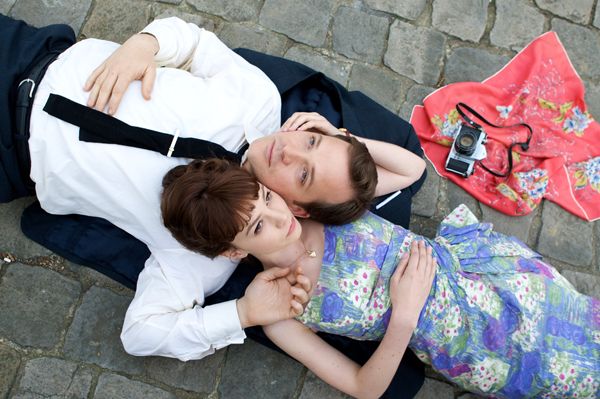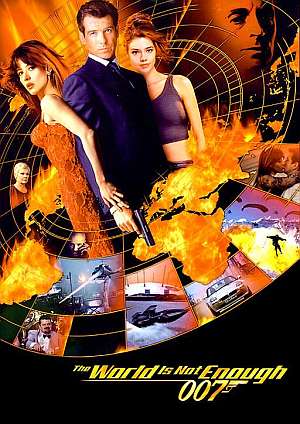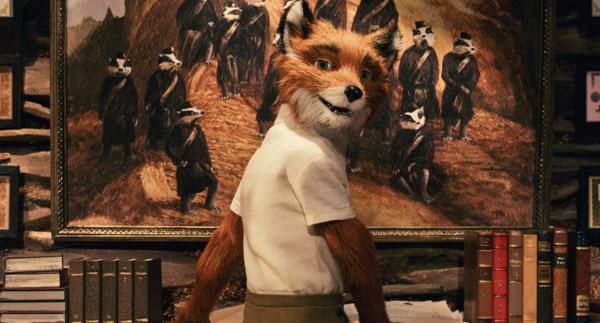DIR: Chris Weitz
CAST: Kristen Stewart, Taylor Lautner, Robert Pattinson,
Michael Sheen, Dakota Fanning

You may have noticed that I’m a big horror fan, and thus I’ve been very much in favour of the resurgence of the genre, and of vampire stories in particular, in mainstream culture. It’s just a shame that this resurgence is largely on the back of something as monumentally dreadful as the Twilight series.
In the interests of full disclosure I should say that I haven’t read Stephenie Meyer’s books. This is despite rather enthusiastic endorsements from both my brother (amazingly, despite being 24 and liking both Twilight and High School Musical, he doesn’t appear to be gay) and my mother. Because of these recommendations I cracked open the first book. I got half way down the first full page before tossing it aside. The concept of the Twilight series isn’t so bad; in fact it’s actually sort of intriguing. A human girl who falls in love with a vampire and then becomes involved in a love triangle with that vampire and a werewolf is filled with potential for drama. Sadly the execution of the idea is botched at every possible turn.
New Moon is spectacularly terrible. You may recall from my review that I hated Twilight (calling it “an unholy mess”). Well, almost impressively, New Moon is considerably worse. It’s tempting to blame Chris Weitz for this, after all, he’s the only significantly different element but when you’re handed a sows ear it’s always going to be difficult to turn it into a silk purse. Even if Weitz were a great auteur - which he is emphatically not - I can’t imagine this film being much better.
The big problem is perhaps inherent to the story. NOTHING happens. Literally. For at least 100 of this film’s 130 painful minutes there is nothing to see except an 18-year-old girl (Kristen Stewart’s Bella Swan) moping. This is because her 109-year-old vampire boyfriend Edward (Pattinson) has dumped her unceremoniously, and told she’ll never see him again. New Moon covers about six months during which this boring, self-obsessed, girl does nothing but pine, and treat everyone else about her like crap. We’re meant to buy into a burgeoning relationship with Jacob (Lautner), but can’t because the script and the character of Bella are so completely obsessed with Edward that the potential for a love triangle never heats up.
As well as being dull, Bella’s a pretty awful character, which is a major problem for the movie, because the entire story revolves around the idea that this girl is so amazing that everyone is obsessed with her. Nothing in the world even exists except in relationship to Bella. You don’t always have to love a movie’s protagonist, but it helps if you don’t actively hate them. And I hate Bella. She’s unspeakably selfish; for six months the entire world is expected to revolve around her (totally unconvincing) pain and she seems to expect people to bend entirely to her will (when Jacob reveals that he’s a werewolf she says, in a completely ham-fisted metaphor for lycanthropy as homosexuality, “it’s wrong. Can’t you just stop?”). More to the point she never considers anyone else in her desire to be with Edward - not even Edward and his family, despite the fact the she is forcing a family of drug addicts to sit idly by while one of their number is basically dating crack. Point of fact you could make a compelling case for Bella being a psychotic erotomaniac. This is what the tedium of New Moon does to you; it forces you to think up your own, considerably more interesting, films.

This series is crying out for camp. Warring vampires and werewolves, all consuming star crossed love (as if the parallels weren’t already hammered home, Romeo and Juliet features in this instalment), the vampires council, the melodramatic emotion. If it were funny - on purpose - New Moon might be bearable, but screenwriter Melissa Matheson, Weitz, and the cast have all clearly been told that Meyer’s work is sacrosanct, and must be treated with a gravitas that it utterly fails to earn. This is a film that wants to be seen in the same earnest light as the Shakespeare that it references but, to put it mildly, Meyer and Matheson aren’t Shakespeare. I think they’d be found out even if they tried to pass themselves off as William’s talentless twin brother Ted Shakespeare. Lines like “The absence of him is everywhere I look. It is like a big hole has been punched through my chest.” read and play as if ripped from a depressed 14 year old’s journal, where it tries desperately to be emotional New Moon only ever manages sickly and slightly worrying.
If only the script were the only problem. Despite Hitchcock’s famous maxim that the three most important things to a movie are “the script, the script and the script” a strong look and a clutch of great performances can, to some degree, rescue a film from a poor screenplay. Oh well. The performances in New Moon are almost uniformly terrible. I’ve previously noted that Kristen Stewart strikes me as one of Hollywood’s most expressionless ‘talents’, well she outdoes herself here. Bella has two expressions ‘huh?’ and ‘can’t act, blinking’, both of which are rendered almost entirely in close up. The only emotion that Stewart registers is ‘scared’, never when it’s appropriate though, actually I think she’s just afraid of the camera. In a part that is supposed to overflow with emotion, Stewart’s total blandness, her utter vacancy, undermines every frame of New Moon. She reads every line with the same dead-souled lack of expression, the emotional content of her work redolent of an alien who has just landed and been handed a script. She either doesn’t understand the concept of what Bella is supposed to be feeling or, despite having been acting professionally for nearly a decade, she completely lacks the tools or the ability to portray any human emotion at all. I’ve seen a lot of movies, and I’m not sure I’ve ever seen a leading actress as consistently poor as Kristen Stewart.
Cinemas are apparently largely divided between two sets of fans ‘Team Edward’ and ‘Team Jacob’, two sets of teenage girls, each squealing for a different plank. Both Robert Pattinson and Taylor Lautner are, I suppose, handsome but equally both appear utterly devoid of talent. Pattinson isn’t helped by his role, which is essentially to brood, largely as an apparition, but he doesn’t help himself by doing every scene with what appears to be a poor attempt at Derek Zoolander’s blue steel look on his face. One especially laughable moment comes as Edward tells Bella “This is the last time you’ll ever see me”. Clearly this line should be devastating for both of them, but Pattinson delivers it with all the weight you might employ to tell your wife that you are just popping down the shops, and Stewart receives it with an exquisite blankness, suggesting that she can’t choose between ‘huh?’ and ‘blinking’ for this important moment. If Pattinson acts with his… nothing, Taylor Lautner does at least go one better, he lets his (mightily impressive) abs do the acting. His abs, sadly, utterly fail to deliver any sense of the longing his character is supposed to feel for Bella, or the conflict between that and his true wolf (read gay) nature. For such a major character, with such extensive screentime, Lautner’s abs contribute very little.

There are some small compensations in the form of the supporting cast, but they are all criminally underused. The beautiful and extremely talented Anna Kendrick gets about six lines as Bella’s friend Jessica (I’d much rather see a film about her than Bella). British actor Michael Sheen does his best as vampire king Aro, he does get the fact that the film needs to be campy and does his best to inject a little fun, though you can almost hear the internal monologue saying ‘I’m doing this for my daughter’. Sadly he, along with Dakota Fanning, who also works hard and puts a great deal into about three lines, has less than five minutes screentime.
From a visual standpoint Chris Weitz doesn’t stamp much identity on the film. It looks a little different to Twilight - more golden browns in place of the steel blues of Catherine Hardwicke’s film - but the film looks no better, or less silly, than the first. The vampire make up is appalling; with the exception of Ashley Greene, who is spared for the sake of making her look especially beautiful, all the vamps have skin so white it is almost marbled. Oddly a bluish green appears to have been mixed into Edward’s make up, which makes him look constantly like he’s about to be sick on Bella. This too undermines the attraction between Bella and Edward, because Edward looks dead. The effects are notably terrible; the glowing is as silly and unconvincing as in the first film - expensive CGI doing a job that would have been as well done with body glitter - but that is the least of it. The film’s big effect is the family of werewolves, and they look appalling. Their physical presence is totally absent, they lack weight, and are horribly integrated into the picture, as if the effects are two passes away from being ready. Yet another problem is the film’s action, even leaving aside the fact that what little there is amounts to perhaps three minutes of film, it is poorly designed and shot, especially in a fight with the Volturi, which has all sorts of bizarre frame rate effects applied, which add nothing to the experience.
Look, I know what these films are, and I know they aren’t really for me but honestly, that’s not the problem. It just feels as though so little effort has gone into this film at every conceivable level. Every aspect of it is embarrassingly poor from script to acting to visuals. I just object to anything so slapdash, so lackadaisical, so explicitly an exercise in commercial cynicism, being vomited into cinemas. I object to the fact that Summit Entertainment is able to expend so little effort and still make a hit movie. We deserve better than this. Perhaps David Slade will deliver, come July’s Eclipse, but I doubt it somehow.




















